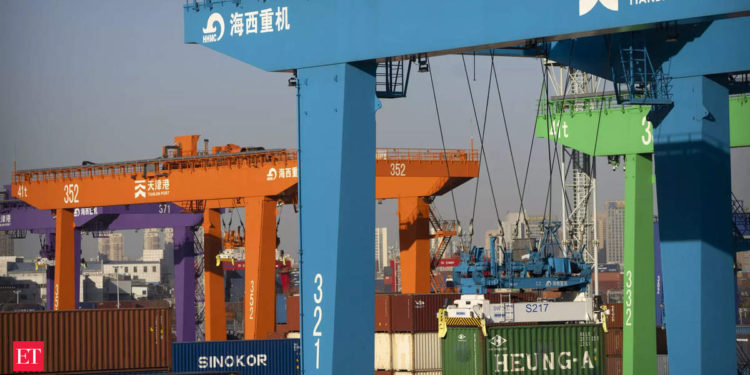While speeding up the switch to cleaner energy could further weigh on activity, effective carbon pricing schemes could yield windfall revenues for some governments, the Organisation for Economic Cooperation and Development (OECD) said.
Trend growth in the 38 OECD members and G20 countries was projected to gradually slow from pre-COVID levels of 3% to 1.7% by 2060 as many countries’ workforces shrink due to ageing and labour efficiency growth slows in emerging market countries.
While OECD members’ trend growth rate was seen slowing from 1.8% to 1.3% in 2060, G20 emerging market economies were expected to see a bigger slowdown, from 4.5% to 2% by 2060.
While India was expected to overtake China as a bigger contributor to global growth by the late 2030s, the Chinese economy was projected to be the single biggest economy throughout the forecast period.
As growth slows, so will the pressure on government finances, which in the case of OECD countries would mean taxes needing to be raised on average by over six percentage points by 2060 to keep debt at current levels. Governments unwilling or unable to raise taxes would have to find other ways to ease the squeeze, such as reforming health and pension systems. Under a scenario that countries accelerate the energy transition to limit the rise in global temperatures to 1.5 degrees Celsius, global growth would be 0.2 percentage points lower than could otherwise be expected between 2025 and 2030.
That drag would increase to nearly 0.6 percentage points by 2045-50 with a smaller shock in the OECD countries than in large emerging market economies more dependent on fossil fuels.
However, the widespread use of tradable emissions permits, carbon taxes and fuel excise taxes to boost carbon prices could generate additional government revenue of around 3.75% of economic output in OECD countries over the 2026-2030 period.







Discussion about this post